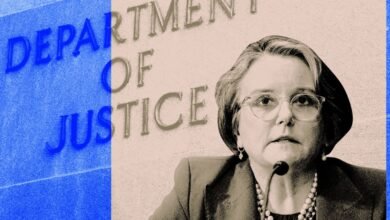Regulator Threatening Apple and Google Faces Major Shakeup

▼ Summary
– Two high-ranking DOJ antitrust officials were fired for “insubordination,” raising concerns about political interference in antitrust enforcement.
– The firings followed internal conflict over a merger settlement involving Hewlett Packard Enterprise, where political influence allegedly overruled antitrust concerns.
– Critics argue the settlement may not address original antitrust issues, with Senate Democrats questioning whether it benefits well-connected insiders.
– The episode signals a breakdown in the traditional independence of the DOJ’s Antitrust Division, with White House influence now more apparent.
– The loss of key antitrust experts threatens the agency’s credibility in ongoing high-profile tech cases, potentially undermining trust in its professional judgment.
The sudden dismissal of two senior antitrust officials has sent shockwaves through the agency tasked with overseeing some of the most significant tech monopoly cases in recent history.
This week, the Department of Justice’s Antitrust Division saw the abrupt termination of Roger Alford and Bill Rinner, key deputies to division chief Gail Slater. While the DOJ vaguely cited “insubordination” as the reason, reports suggest deeper tensions, particularly over a controversial merger settlement involving Hewlett Packard Enterprise’s $14 billion acquisition of Juniper Networks. Sources indicate that political pressure, rather than antitrust principles, may have influenced the outcome.
The situation has raised alarms about whether political favoritism is undermining impartial antitrust enforcement, especially in cases involving major tech firms. Slater, known for her tough stance on Big Tech, reportedly opposed the settlement but was overruled. The deal’s approval, allegedly pushed by allies of former President Donald Trump, has drawn scrutiny from lawmakers who argue it fails to address core competition concerns.
Critics warn that such interference erodes trust in the DOJ’s independence. Historically, the Antitrust Division has operated with minimal White House meddling, but recent events suggest that firewall has weakened. Bill Kovacic, a former FTC chair, notes that this shift could embolden companies to seek political leverage rather than rely on legal arguments.
The fallout comes as the DOJ prepares for high-stakes battles against Google, Apple, and Live Nation-Ticketmaster. While experts believe these cases are too prominent for backroom deals, the recent turmoil casts doubt on the agency’s ability to resist external pressures. The loss of Alford and Rinner, both respected for their expertise, further diminishes the division’s credibility in court, where trust in professional judgment is crucial.
A potential Tunney Act review could expose more details about the HPE-Juniper settlement and the circumstances behind the firings. Though reversing the decision is unlikely, transparency might reveal whether corporate interests or national security concerns, rather than antitrust law, drove the outcome.
For now, the episode serves as a stark reminder of how political influence can reshape regulatory enforcement, with long-term consequences for competition policy. As Kovacic puts it, this undermines the very principles the U.S. has long championed, fair, unbiased oversight free from backroom maneuvering.
(Source: The Verge)





